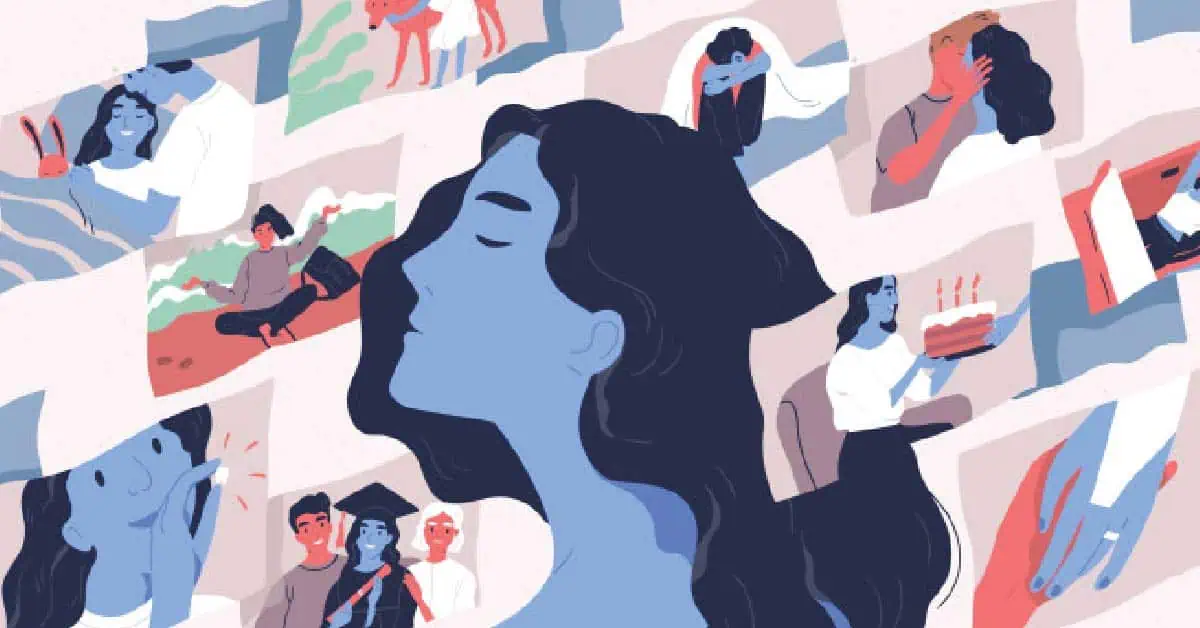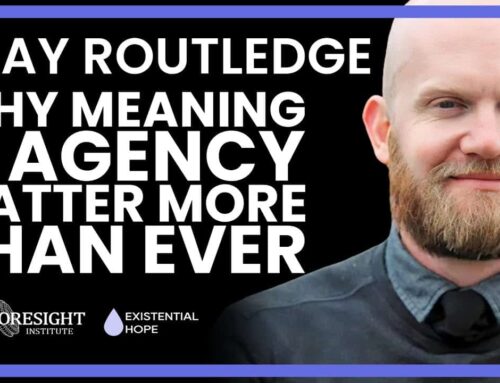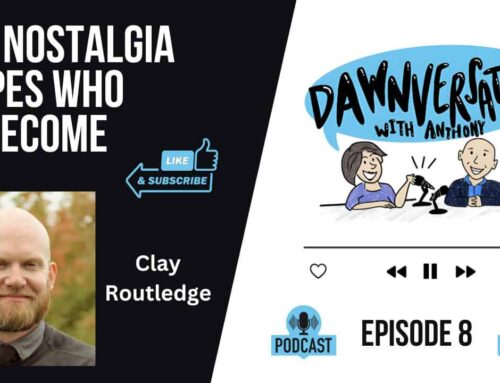
Excerpt:
Do you often find yourself thinking back to the past and reminiscing about different experiences and memories? Or, maybe you find yourself focusing more on the future, imagining yourself accomplishing a goal or just thinking about what your life could look like.
“I think people kind of go back and forth from the past to the future, like in a time machine,” says existential psychologist Clay Routledge, vice president of research and director of the human flourishing lab at the Archbridge Institute. This “human ability to mentally time travel” intrigued Routledge and inspired numerous research studies. According to the science, mentally looking back in time — and to the future, where we can imagine our future selves — can be beneficial in many ways.
For a while, it was hard to escape the belief that “there’s something wrong with people being stuck in the past,” Routledge says. This notion stems from the origins of nostalgia itself. In the late 17th century, he continues, a Swiss physician started noticing homesick soldiers experiencing symptoms such as anxiety, insomnia and nausea. Because of this, the term nostalgia was born to represent what this physician deemed an actual neurological disease, Routledge says.
While people started to give up on this medical view of nostalgia, there was still a negative association with it for centuries afterwards, Routledge explains. Then, in the late 20th and early 21st century, marketing research demonstrated that people want to revisit certain memories, as evidenced by the considerable amount of money people spent on products that did just that. This “time travel” to the past wasn’t making them miserable; instead, it was doing the opposite, Routledge says.
Maybe there’s a smell that reminds you of your favorite season, and when you burn a candle with this scent, it immediately puts a smile on your face. Or there could be an old song that when you play it, you suddenly feel comforted. According to a study published in 2006 in the Journal of Personality and Social Psychology, “nostalgia bolsters social bonds, increases positive self-regard and generates positive affect.”
Researchers like Routledge have discovered that nostalgia can even be used as a coping mechanism to help bolster a negative mood or keep loneliness at bay. In fact, scientists even found that there was a surge in the amount of older songs played on Spotify during the initial wave of pandemic lockdowns, according to a study published in the journal SSRN in 2020.
About a decade ago, further research revealed that nostalgia can serve as a motivational tool, too, Routledge says. He explains that when research participants have written about a sad memory or a hard time in their life, more often than not, that exercise helped them shift into a more hopeful state, where they were able to find meaning in their life.
“When we’re anxious about the future, the uncertainty of the future — or the certainty — we can turn to the past as a way of being like, ‘Well, I’ve had a good life, I’ve had meaningful experiences’ and you know, that’s kind of reassuring,” Routledge says.
Before researching nostalgia, Routledge actually looked to the future first, considering how humans often take on projects that might not give immediate results. For example, it can take many stressful years to obtain a college degree. Still, humans have the ability to “project” ourselves into the future, imagining ourselves accomplishing a goal to propel us through that adversity, Routledge says.
Read the full article at Discover Magazine.





